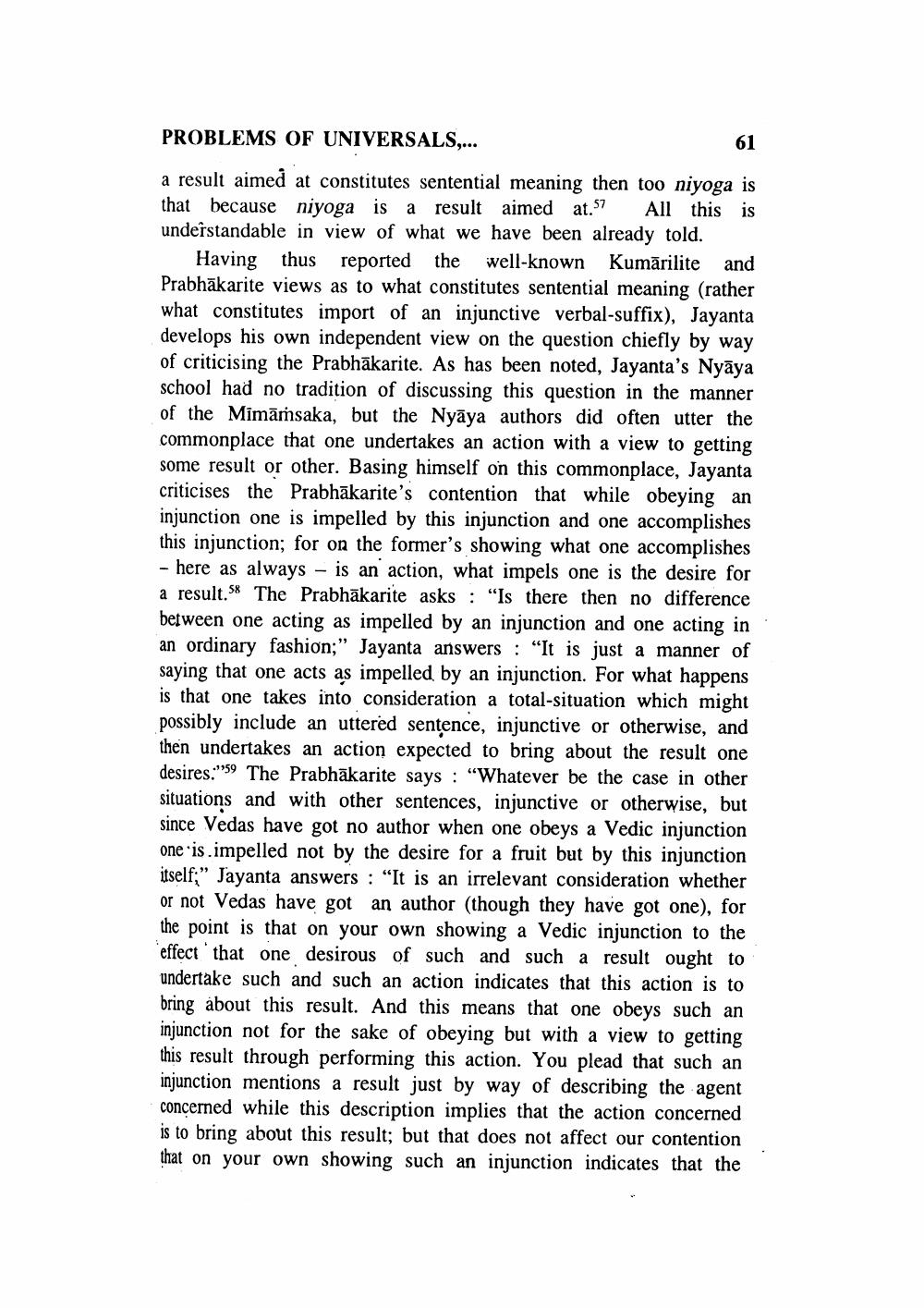________________
PROBLEMS OF UNIVERSALS...
a result aimed at constitutes sentential meaning then too niyoga is that because niyoga is a result aimed at.57 All this is understandable in view of what we have been already told.
Having thus reported the well-known Kumārilite and Prabhākarite views as to what constitutes sentential meaning (rather what constitutes import of an injunctive verbal-suffix), Jayanta develops his own independent view on the question chiefly by way of criticising the Prabhākarite. As has been noted, Jayanta's Nyāya school had no tradition of discussing this question in the manner of the Mimāmsaka, but the Nyāya authors did often utter the commonplace that one undertakes an action with a view to getting some result or other. Basing himself on this commonplace, Jayanta criticises the Prabhākarite's contention that while obeying an injunction one is impelled by this injunction and one accomplishes this injunction; for on the former's showing what one accomplishes - here as always – is an action, what impels one is the desire for a result.58 The Prabhākarite asks: "Is there then no difference between one acting as impelled by an injunction and one acting in an ordinary fashion;" Jayanta answers : “It is just a manner of saying that one acts as impelled by an injunction. For what happens is that one takes into consideration a total-situation which might possibly include an uttered sentence, injunctive or otherwise, and then undertakes an action expected to bring about the result one desires:"59 The Prabhākarite says : "Whatever be the case in other situations and with other sentences, injunctive or otherwise, but since Vedas have got no author when one obeys a Vedic injunction one is impelled not by the desire for a fruit but by this injunction itself;" Jayanta answers : "It is an irrelevant consideration whether or not Vedas have got an author (though they have got one), for the point is that on your own showing a Vedic injunction to the effect that one desirous of such and such a result ought to undertake such and such an action indicates that this action is to bring about this result. And this means that one obeys such an injunction not for the sake of obeying but with a view to getting this result through performing this action. You plead that such an injunction mentions a result just by way of describing the agent concerned while this description implies that the action concerned is to bring about this result; but that does not affect our contention that on your own showing such an injunction indicates that the




